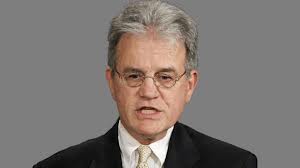The Norman Transcript
Did you know the National Football League, which received $184 million from its 32-member teams in 2010, is registered as a nonprofit with the Internal Revenue Service? And that NFL Commissioner Roger Goodell reported $11.6 million in salary and perks in 2010?
This sports league exemption is available to the NFL, the National Hockey League and the Professional Golfers’ Association, among others, because of a provision in the tax code that allows industry and trade groups such as the U.S. Chamber of Commerce and the Natural Resources Defense Council to qualify as nonprofit and as tax-exempt. These industry groups cannot promote a specific brand within an industry but may promote the industry as a whole.
That loophole costs taxpayers an estimated $91 million according to U.S. Sen. Tom Coburn, R- Okla.
Coburn released his annual “Wastebook” report today, citing incidents of government extravagance and decrying tax loopholes he said contributes to the growing deficit.
“The problem in Washington is politicians are very specific about what we should fund but not specific about what we should cut,” Coburn said. “As a result, we are chasing robotic squirrels and countless other low-priority projects over a fiscal cliff.”
Oklahoma is not exempt from the pork, Coburn said. “Wastebook 2012” reports that the Oklahoma Aeronautics Commission voted to keep a “rarely used Lake Murray State Park Airport open,” even though the airport reportedly averages only one flight per month and has no planes based there.
The Federal Aviation Administration funds the airport to the tune of $150,000, according to “Wastebook 2012,” but almost all of that money is used in other places throughout the state.
While it is true that one person’s trash is another’s treasure, it’s hard not to question some of the spending Coburn identifies, given the current state of the economy and the multi-trillion dollar deficient facing this nation.
A program highlighting a Moroccan pottery class costs taxpayers $27 million but has reportedly “not reached its goals,” according to “Wastebook.” This project is part of a four-year plan by the U.S. Agency for International Development to improve the economic competitiveness of Morocco. Problems with the translator and the choice of materials, such as dyes and clays not available in Morocco, doomed the pottery classes to failure.
The irony of the pottery project is that the Moroccan people have been making ceramics since the fifth century BC, begging the question of why a culture with such a rich legacy would need this sort of outside help.
One of the more interesting expenditures cited in “Wastebook” is $1 million spent annually on building a Mars menu for astronauts, with $947,000 going to researchers at Cornell University and the University of Hawaii for tasters on a simulated Mars trip to see how various foods affect moods and health.
This despite the fact that the National Aeronautics and Space Administration no longer has a manned space fleet and has no current mission plans for human space flight to Mars. Findings included the monotony of a diet without variety.
Coburn’s “Wastebook” said this is money lost in a “black hole.”
“This report also exposes the folly of across-the-board-cuts or sequestration,” Coburn said. “There is no question we can find hundreds of billion dollars of waste in our budget. Yet, by not going through the budget line by line and setting priorities, we are protecting ridiculous programs like caviar promotion and climate change musicals while cutting vital programs.
“Until Congress has the guts to cut specific programs, we will never get our debt under control. As these examples illustrate, it is not nearly as hard to make those choices as many politicians claim. Instead of spending federal dollars to help golfers imagine a smaller hole, we should be trying to shrink the hole in our budget.”
Joy Hampton366-3539jhampton@normantranscript.com








